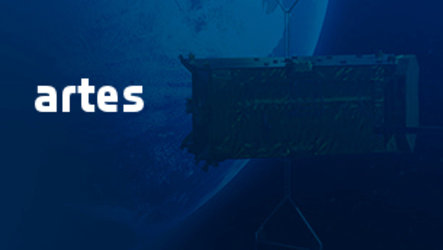Interactive space simulation for nanosatellites
Pioneer partner Open Cosmos are taking mission development to a new dimension, using a virtual reality-like simulation that replicates life in orbit for space technologies.
Through an innovative combination of a plug-and-play test platform and software, the UK Harwell-based SME is slashing the time it takes for space missions to be designed and qualified for launch.
Their online ‘beeApp’ software helps define a full space mission from the ground up, including selection of launchers, ground stations and satellite size.
Based on those parameters, it runs simulations on the orbits, amount of power received by the satellite from the sun, and when it can communicate with the ground. This data is then used to create the optimal mission profile.
Once that has been decided, their ‘beeKit’ hardware emulates the size, on-board computer and electrical interfaces of a real satellite, to facilitate the design and testing of the actual payloads.
When linked, these two tools can simulate the mission in space, and how the payload will perform.
The beeApp simulates the amount of available solar power, the ground station passes and the payload’s modes of operation and plays it back to the real payload installed in the beeKit.
That then records the behaviour of the payload as if it was in orbit, providing the mission owners with the data they need to either improve the design or proceed with the mission as is.
Moreover, the kit hardware is a match for Open Cosmos’ beeSat operational platform, and can be tested along with the payload for the usual mechanical space-qualifying tests, such as vibration and thermal vacuum testing.

This means that after the payload has proven to be able to withstand the replicated conditions of launch and space in the beeKit, it can immediately be integrated with the beeSat spacecraft platform, ready for the real thing.
Open Cosmos then takes care of all technical, legal, logistical and operational processes to bring the payload into orbit at minimal cost.
The company developed the tools under the ‘SAPION’ project of ESA’s ARTES Pioneer programme.
Khalil Kably, ESA Pioneer Programme Manager, said: “Pioneer is designed to support companies like Open Cosmos to provide in-orbit validation for other parties as what we call Space Mission Providers.
“Our purpose is to de-risk our partners’ investments to answer market needs, and we saw a real need to reduce the barriers that can impede the development of disruptive ideas and help Europe’s space sector remain at the cutting edge of technological innovation.”
Dani Sors, Open Cosmos Head of Customer Success and Florian Deconinck, Head of Strategic Partnerships presented their beeApp and beeKit tools to an audience of ESA experts and Member State delegates at ESA ECSAT on Harwell Campus, UK, on 6 February.
Catherine Mealing-Jones, Director of Growth, UK Space Agency, said: “The UK is the largest funder of satellite telecommunications research and applications through ESA. We continue to work closely with partners across Europe and the rest of the world to help space start-ups like Open Cosmos transform their exciting ideas into commercial realities, resulting in jobs, growth and innovation throughout the UK.”
Remco Timmermans, Open Cosmos Head of Communications, said: “Open Cosmos makes space accessible to new players, using new technology, in the shortest timeframes currently possible. We support anything from Earth observation, scientific instruments, telecommunications or new technology demonstrations, and can get a payload in orbit in much less than the usual time and at a fraction of the cost.
“There is a broad community of people with ambitious ideas struggling to get to orbit. Open Cosmos partners with that community to realise their space mission. The Open Cosmos Call to Orbit, supported by ESA, makes the beeApp and beeKit available for free, to start building the missions of tomorrow.
“We make space accessible by making space missions simple.”





